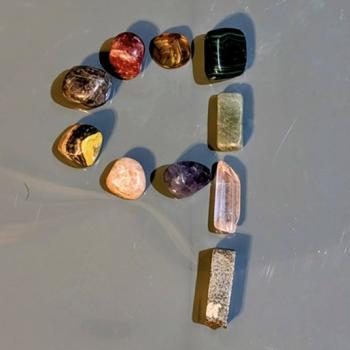No matter how much some Christians might complain about the positive spin that these books seem to give magic and Paganism (which they don’t necessarily do, except insofar as they don’t overtly endorse and evangelize for Christianity, which is the “same thing” to many of the Christians who would complain about the books and films), I suspect there are things that are far more threatening in the books that they may not even realize. Two strands of this go hand-in-hand with another common Christian concern: the promotion of the “gay lifestyle” by any overt or covert reference to it that is not condemnatory. There are two characters in the Harry Potter world that can be understood to illustrate certain aspects of queer life in particular: Albus Dumbledore and Remus Lupin.
J. K. Rowling revealed in an interview in October of 2007 that she always saw the character of Albus Dumbledore, the old and wizened avuncular headmaster of Hogwarts and advisor to Harry, as gay. It is not entirely obvious in the books themselves as they stand, and yet, because the author has said it, it is technically canon to consider this to be the case. Dumbledore was in love (unrequited, apparently) with Gellert Grindelwald, one of the most nefarious wizards of all time. Grindelwald was formerly Dumbledore’s friend, but Dumbledore defeated Grindelwald in a wizarding duel after he realized how evil he was (at the expense of Dumbledore’s sister’s life), and gained the Elder Wand from him when he did so. Grindelwald was then imprisoned for life, and was later killed by Voldemort when he would not reveal where the Elder Wand had gone. It appears, then, that due to his misplaced affections earlier in life, Dumbledore went on to be a lifelong celibate.
People, of course, had a field day in their imaginations with the chapter of the final book, “King’s Cross,” in which Harry is in a limbo-like state and has a final in-depth conversation with Dumbledore, and he wakes up in that state naked with Dumbledore in the room. Tell me what “rule” there is that a change of existential and spiritual states means that one’s ostensible form in such a state comes clothed? Nothing untoward need be thought to have occurred during this pre-conversational moment in that limbo state. And, given Dumbledore’s advanced age and habit of celibacy, I’m sure he wouldn’t have just turned on a dime in order to take advantage of a confused and unconscious soul in difficulty simply because he was “there.” I’ve met a large number of celibate gay men in my time, including Catholic priests; it’s perfectly possible to “be gay” without being in relationships or having sex -- ask any single gay or lesbian person this, or for that matter, any straight person who happens to be single.
The other character in the “Potterverse” that seems to show a queer side, or at least that exhibits characteristics that can be understood metaphorically in this manner, is Remus Lupin. In the third book, and particularly in the film version of it, Lupin’s lycanthropy is almost presented as a dual metaphor for queerness as well as for HIV/AIDS. In the book version, he says toward the end of it that many parents would not want a werewolf teaching their children at Hogwarts; in the film version, he instead says “someone like me,” which leaves the metaphorical possibilities even more open. In the sixth book, the evils of Fenrir Greyback, a werewolf working for Voldemort who tries to spread his “disease” as indiscriminately as possible, can certainly be read this way.
Though Lupin ends up getting married to Nymphadora Tonks, he is very resistant to her love at the end of the sixth book because he is too old, poor, and “dangerous,” and even leaves her temporarily when she is pregnant in the seventh book because he feels their marriage has made her into an outcast. (And, I would hasten to point out, just because someone gets married doesn’t mean they might not still be queer; there are bisexuals who get married in full knowledge with their partners. And I would add that since Tonks is a metamorphmagus, she can become any species or gender, which has some rather queer possibilities on its own!)
The way that Bill Weasley’s suffering an attack by Fenrir Greyback leads to fears that he may become a werewolf himself, and that this may in some way disrupt his relationship with Fleur Delacour, is a troubling matter that eventually finds resolution. The way that all of these lycanthropic difficulties seem to indicate HIV/AIDS (or some other sexually transmitted disease) says a great deal, including the way in which bisexual men are sometimes demonized for “spreading AIDS to the straight population.” There is nothing to be gained with this sort of demonization, of course, and the ways in which the various children of Bill and Fleur and the child of Lupin and Tonks do not become werewolves, rather puts a rest to such tendencies and hysteria, at least within the “Potterverse.”





